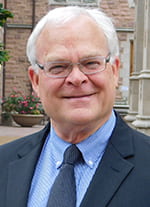Natural resource wealth underpins a proposal for what may be the world’s next national children’s account policy.
Kazakhstan is a nation of over 19 million people and tremendous natural-resource wealth. It is also the site of what could be the next national children’s account policy.
Under a proposal by President Kasym-Zhomart Tokayev, every newborn citizen would receive an asset-building account funded through natural resources. Opened automatically when children are born, the accounts would grow with annual deposits from the state. When they turn 18, beneficiaries could access their assets for investments in higher education or housing.
The proposal moved closer to policy in June, when the Mazhilis, the lower house of Kazakhstan’s parliament, enacted legislation. Officials are scheduled to discuss elements of the still-developing policy in a hybrid conference co-organized by the Center for Social Development at Azerbaijan University in Baku this fall.

“The policy proposed by President Tokayev and taking shape in the parliament has the potential to effect historic change in the opportunities for Kazakhstan’s children,” said CSD Postdoctoral Fellow Aytakin Huseynli, who has conducted in-depth research on strategies for improving well-being in post-Soviet countries.
“In tapping natural resource revenues, Kazakhstan plans to develop a workforce for the nation’s future. The policy will create a path for every child to grow up and access some form of higher education,” Huseynli said.
In 2019 and 2020, she interviewed officials, policymakers, academics, and social-service professionals in Kazakhstan to assess the viability of a Child Development Account (CDA) policy, which was initially articulated by CSD Director Michael Sherraden and is similar to Tokayev’s proposal.

Sherraden, the George Warren Brown Distinguished University Professor at Washington University, described the structure for a universal CDA policy in the 1991 book “Assets and the Poor” and has tested it through the Center for Social Development’s long-running SEED for Oklahoma Kids policy experiment.
He envisioned a centralized policy that would automatically provide each newborn with an account and assets, which would grow over time to enable eventual investments in higher education and other developmental priorities.
Under the proposed policy, Kazakhstan would divert a portion of income from the investment of natural resource revenues to fund a new National Fund for Children, from which the state would make contributions into accounts opened automatically at the beneficiaries’ birth. Kazakhstan would begin opening accounts in January 2024.
The legislation passed by the Mazhilis in June tasked the nation’s Unified Accumulative Pension Fund with administering the policy. It would use data from the Ministry of Justice to identify new beneficiaries and open accounts. Fund administrators would also be responsible for the state’s deposits, which would be made in U.S. dollars to protect the assets from inflation.
Media reports indicate that accumulated assets would be exempt from taxation, and funds not withdrawn by the beneficiary would be rolled over into the individual’s retirement account. The proposal called for a website or mobile app whereby beneficiaries could monitor their accounts, and finance officials have confirmed that such a capability is under development.
The policy and Huseynli’s research are described in a brief she cowrote with Sherraden. Both will present findings from their research at the Baku conference this fall.
The two models – Tokayev’s and Sherraden’s – feature universal eligibility, automatic, at-birth enrollment, a centralized structure, substantial public investment, and limits on how accumulated assets may be used. Sherraden’s model has been enacted in several nations and U.S. states. According to estimates, over 15 million children now have assets in CDAs, and this number grows automatically with new birth cohorts.
“The National Fund for Children proposal is an impressive effort to harness the power of natural resource wealth for social development,” said Sherraden. “This policy, if implemented as planned, will create opportunity for the next generation and build the educated workforce of the future.”
“The Kazakhstan child account policy could also become an example for other resource-rich low-to-middle-income countries,” observed Huseynli. “Most of these countries have suffered from the “resource curse,” where people are actually worse off when natural resources are present.
In the 1970s, countries began creating natural reserve funds to save natural resource wealth for future generations, Huseynli explained. But research has shown that those funds did not work well.
“Political and economic elites were the only ones with access to the natural reserve funds,” she noted. “There was mismanagement and misappropriation. Asset-building policies funded by natural resource wealth, on the other hand, could give nations a chance to redistribute that wealth among citizens equally and to use the wealth efficiently.”
Huseynli added, “Asset-building policies such as Child Development Accounts enable asset accumulation at the individual level and thus could be an effective option for improving upon what natural reserve funds offer. Child Development Accounts could become a systematic strategy for countering the resource curse by developing all children to reach their potential.”
More
Asset Building Policies to Lift the Resource Curse: Child Development Accounts in Oil-and-Gas-Rich Countries
Article | Huseynli (2023). Children and Youth Services Review
Child Development Accounts: A Policy Design and Opportunity for Azerbaijan
Policy Brief | Huseynli, Sherraden, & Gottlieb (2020)
Child Well-Being Policies in Post-Soviet Countries: The Potential of Child Development Accounts
Policy Brief | Huseynli & Sherraden (2023)
Worldwide, Over 15 Million Have Child Development Accounts
News | July 11, 2022
